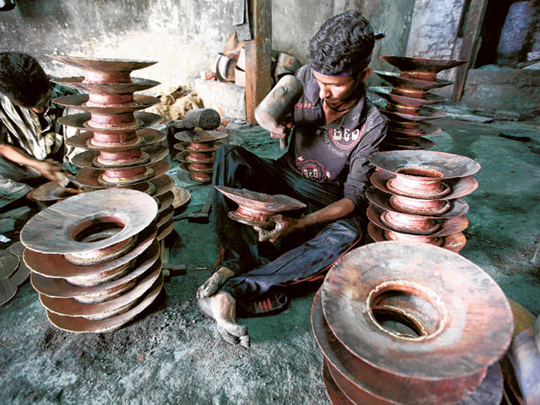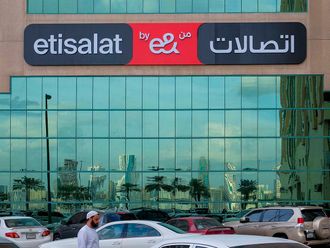
Sydney: BlackRock-managed Global Mining Investments favours exposure in copper, iron ore and metallurgical coal sectors as demand for industrial raw materials shows signs of improving in developed economies, the company said yesterday.
Steel mills from Poland to Pakistan to Turkey are pushing up production, causing a rush for iron ore and coal, as well as nickel, magnesium and even copper, which is finding more uses in steel-intensive products such as cars and computers.
GMI Chairman John Robinson told Reuters there had been a "fairly slow" rise in production of any consequence since 2008's global financial crisis, fuelling heated demand for limited supply in these commodities.
"With demand robust in emerging economies and improving demand in developed economies, along with constrained supply in some commodities, the outlook for the sector is particularly strong," Robinson said.
Copper at record high
Copper raced to record high prices this week. Iron ore is up more than 12 per cent this year, after soaring more than 40 per cent in 2010. Prices for metallurgical coal have also surged to within close range of 2008's record highs.
"These are the areas where we see a continuing supply shortfall and consequent price increases," Robinson said.
BlackRock manages the world's largest mining mutual fund, with about $35 billion invested in international stocks.
GMI beat the HSBC Global Mining Index benchmark by 5.3 percentage points in 2010.
Robinson also said he was less favourable toward aluminium due to a global supply glut of the metal.
About $110 billion (Dh403.7 billion) in capital spending earmarked by big mining companies, including BHP Billiton, Rio Tinto and Xstrata recently was justified, given demand growth projections over the next five years, according to Robinson.
Mining companies have largely cited demand from China and other emerging economies for strong profit growth in 2010, with activities in developed countries still mired in the after-effects of the financial crisis.
"So far the demand side has been pretty much driven by China, but now we are starting to see some pick-up in economic activity in the more developed economies," Robinson said.
"What we expect over the next five years is to see growth [in commodities] from those areas, as well as ongoing growth in the developing markets."
BHP Billiton, the world's biggest mining company, plans to pour $80 billion into expansion over the next five years rather than chase ambitious takeovers after booming demand for iron ore and copper helped nearly double its first-half profits, the company said on Wednesday.
Rio Tinto is also spending billions of dollars lifting iron ore production to 283 million tonnes — more than a quarter of annual world demand — by 2013 from 230 million tonnes last year.
Major price factor
At the same time, Robinson downplayed concerns about the impact on commodities markets of belt-tightening in China on money lending in order to cool the economy, saying the country will continue to be the main driver for commodities prices.
Inflation pressures in China, consumer of 40 per cent of the world's copper, and elsewhere, have sparked anxiety amongst investors.
Food inflation is a particular problem for China, and higher prices for basic staples could eat into the disposable income of millions of would-be consumers.
"These things are always possible but I take comfort in the fact that so far China has managed its growth versus inflation pressures fairly well. It's not going to be a straight line progression, there's bound to be inflection points when China cuts back a bit to try and halt inflation," he said.
China's steel plans
China expects to make a record 660 million tonnes of crude steel in 2011, but the growth is just about half of last year's pace, due to Beijing's attempts to slow economic growth.
Robinson also said gold prices were being supported by economic uncertainties and growth in exchange traded funds, despite holdings in the SPDR Gold Trust, the world's largest gold-backed exchange-traded fund, sitting at a nine-month low of 1,224.008 tonnes.












